Tour de France 2019: 5 key stages
Steep climbs, gravel and thin air will test the best in the Grand Boucle
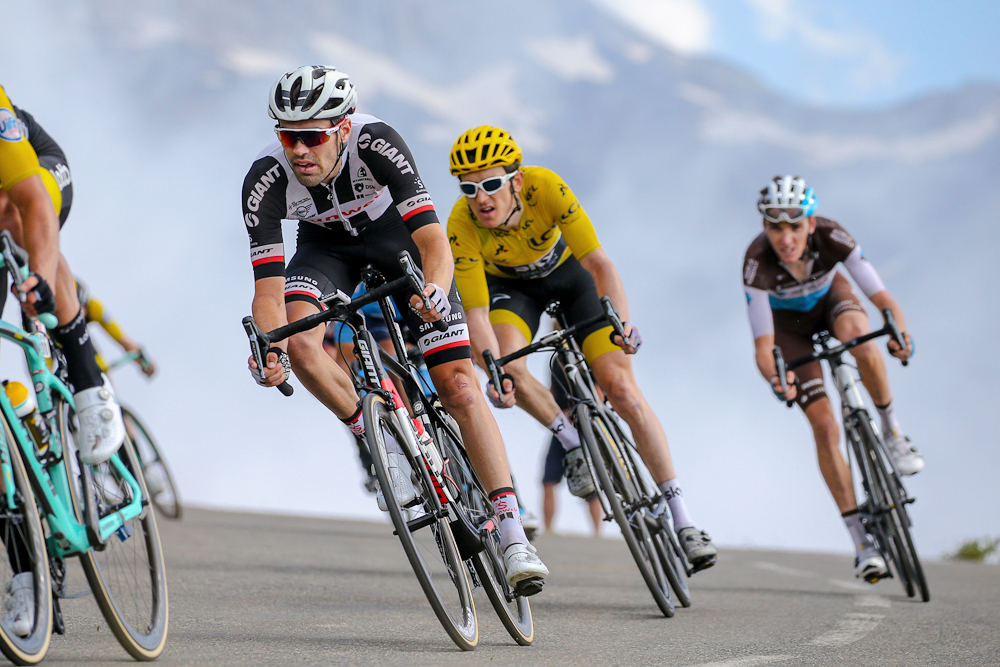
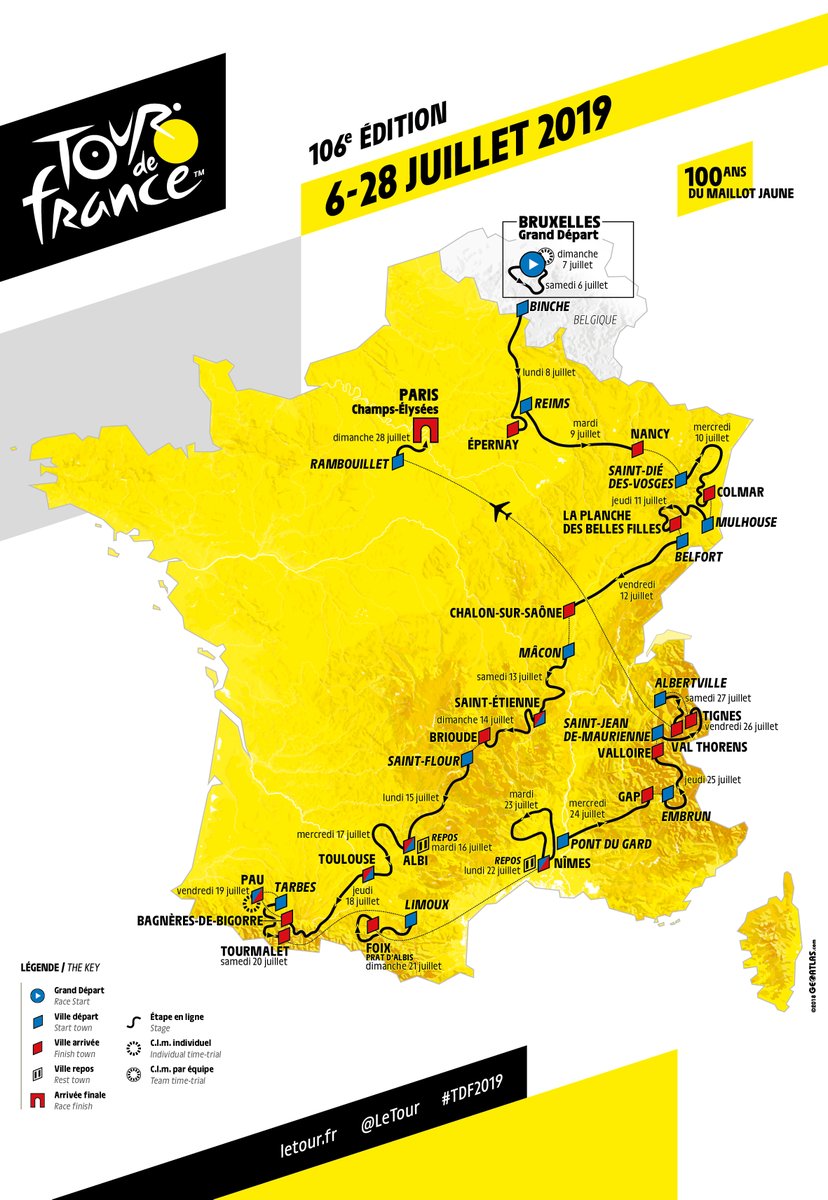
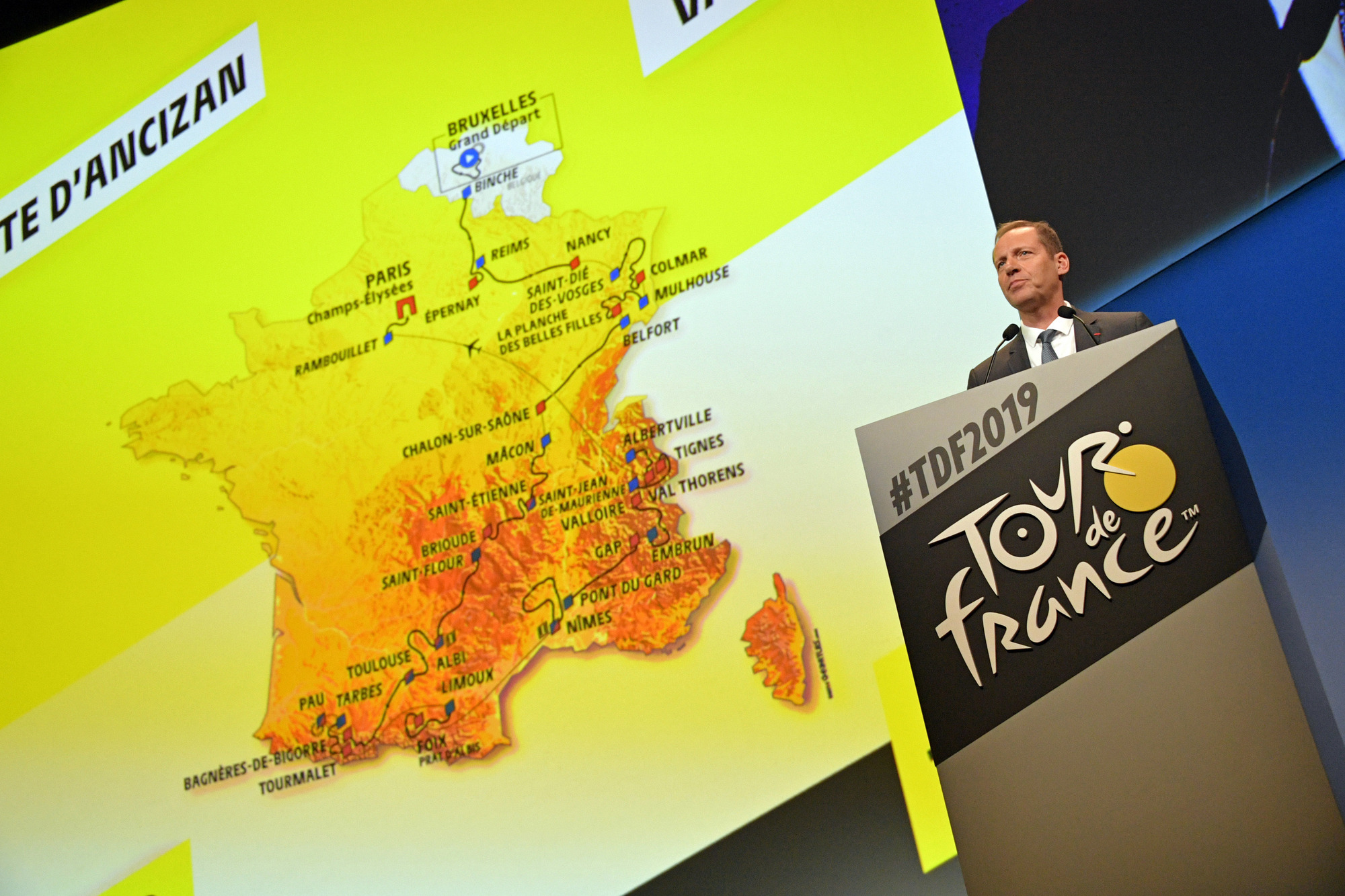
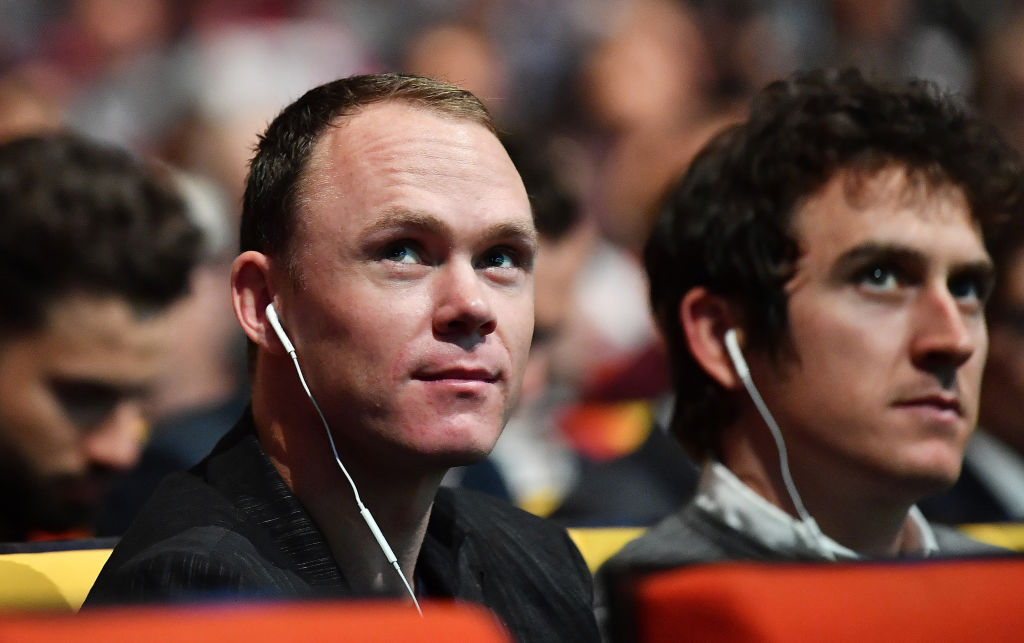
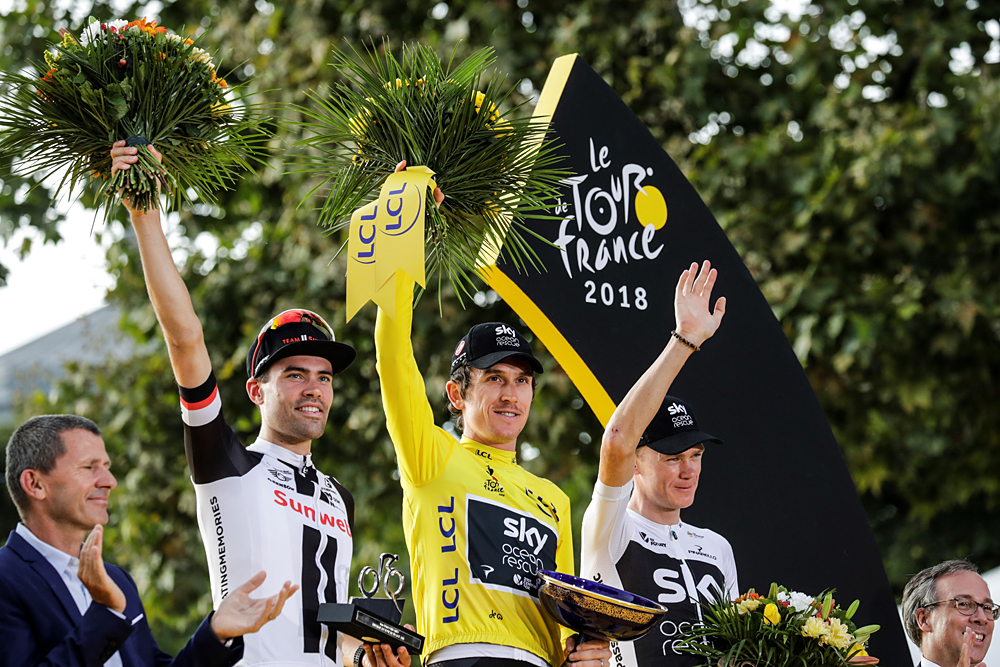
Tour de France organisers ASO revealed the route of the 2019 race at the Palais des Congrès in Paris on Thursday in what has been dubbed a ‘classic’ for the 106th edition of the French Grand Tour set to take place from July 6-28.
The route will feature seven mountain stages that include five mountaintop finishes; La Planche des Belles Filles (stage 6), Col du Tourmalet (stage 14), Foix Prat d'Albis (stage 15), Tignes (stage 19) and Val Thorens (stage 20).
It is also the first time in history that the Tour de France will include three mountaintop finishes above 2,000 metres on the Col du Tourmalet, Tignes and Val Thorens. The peloton will also have to go over several other mid-stage mountain passes that are above that altitude; Col d'Izoard (stage 18), Col du Galibier (stage 18), and Col d'Iseran (stage 19), which is the highest paved pass in the Alps at 2,770 metres.
Four-time winner of the event, Chris Froome, was in attendance for the route reveal and said that the high altitude aspects of this edition would play a significant factor. He said the parcours favoured a rider like Nairo Quintana.
"Some riders deal with altitude better than others, especially those who were born and live at altitude like Nairo Quintana," Froome said. "Those climbs should really suit him. I think that spending a lot of time at altitude will be one of the main parts of preparing for this Tour.
"Every year I've had to adapt and this year is no different. I'll do all I can to adapt to it and make sure I'm at my best in the mountains."
There are also only 54 kilometres of time trialling that are split between one team time trial and one individual time trial. The stage 13 individual time trial in Pau could mark changes between the contenders for the overall classification.
Get The Leadout Newsletter
The latest race content, interviews, features, reviews and expert buying guides, direct to your inbox!
While it is hard to predict what will happen along the three weeks of racing, Cyclingnews selected five key stages that could have an impact on the overall outcome of next year's Tour de France.
Stage 6: Mulhouse to La Planche Des Belles Filles, 157km (July 11)
After the Grand Depart in Brussels, Belgium, the Tour de France will head south through the Vosges toward the Massif Central and into the Pyrenees. While in the Vosges, the peloton will tackle its first mountainous stage on July 11 from Mulhouse to La Planche Des Belles Filles, a 10km climb that steepens to 20 per cent at the top. The 157km route includes four categorised climbs along the route to the Tour's first summit finish. It’s those intermediate ascents; Le Markstein, Col du Hundsruck, Ballon d’Alsace and Col des Chevreres, that will whittle down the field ahead of the final climb, allowing us a preview of who is at their best in the mountains.
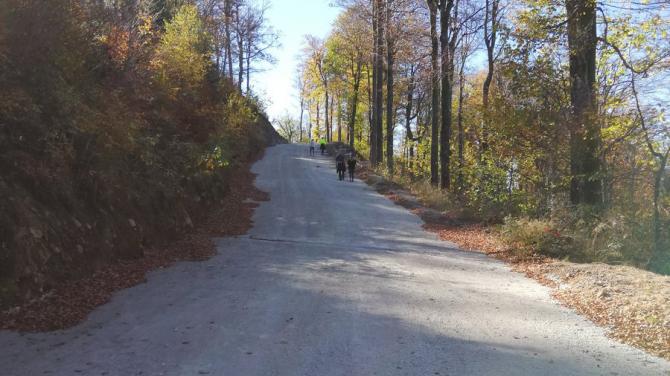
Stage 13: Pau to Pau, 27km individual time trial (July 19)
This year’s route will only include 54km in time trials, and that will be split evenly between the stage 2 team time trial in Brussels and the stage 13 individual time trial in Pau. Time trials have a way of putting distance between evenly-matched climbers, however, and this time trial will be no exception.
The 27km individual time trial is mainly uphill on the way out and undulating downhill on the way back to the finish line. The first climb takes the riders up to Medout and another climb up Côte d’Esquillot before a descent and nine-kilometre run-in to Pau.
On a somewhat similar stage in the 2018 Tour, Tom Dumoulin (Sunweb) and Chris Froome and Geraint Thomas (both Team Sky) were separated by just 14 seconds. Expect the margins to be even tighter in 2019 between the top riders.
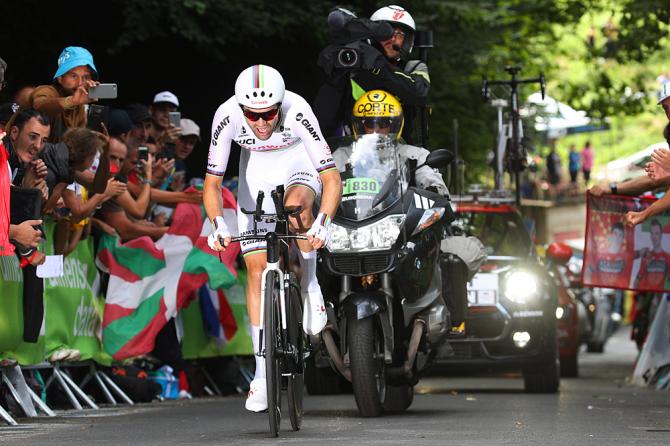
Stage 15: Limoux to Foix, 185km (July 21)
The peloton will have ventured through the Pyrenees and had their legs drained atop the high-altitude summit finish on the Col du Tourmalet during stage 14. The riders will only suffer more as the climbing gets even more daunting during the 185km stage 15 from Limoux to Foix.
There are three mountain passes; Col de Montsegur, Port de Lers and the steep Mur de Péguère that hits 18 per cent, before a descent into the base of the Prat d’Albis. The final climb in Foix is 11km with its steepest sections at 11 per cent during the first third. It tapers off to 6-7 per cent all the way to the top. Warren Barguil claimed his first of two Tour de France stage victories atop the Prat d’Albis in 2017, before going on to win on the Izoard during the same edition.
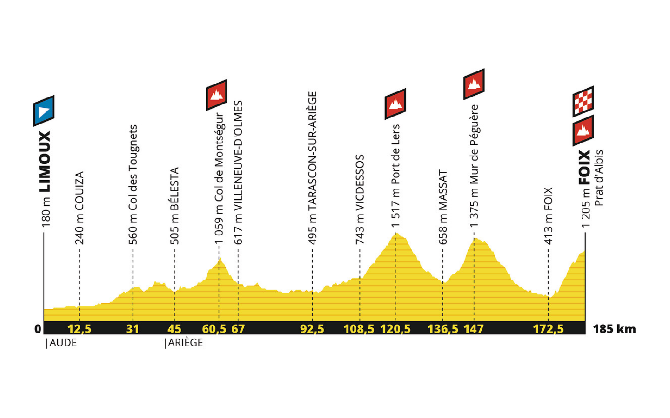
Stage 19: Saint-Jean-De-Maurienne to Tignes, 123km (July 26)
The Tour de France hits the base of the Alps after the second rest day in Nîmes and tackles three successive Alpine stages 18, 19 and 20. Stage 18 will feature the Col d'Izoard and finish after a descent from the Col du Galibier, both climbs reaching higher than 2,000 metres in altitude.
The riders will hit the short, punchy 123km stage 19 to Tignes with very tired legs, a situation that the 12km Col d'Iseran will by no means help. The climb comes after just 85km and is the highest paved pass in the Alps at 2,770 metres. Even better - the ASO has decided to award time bonuses atop several climbs including the Iseran.
Whoever is left standing will then face the Montee de Tignes: the final climb is shorter at 9km, and its steepest section is just over 9 per cent at the bottom. Another steep pitch comes just before a flat final kilometre, a perfect place for an attack.
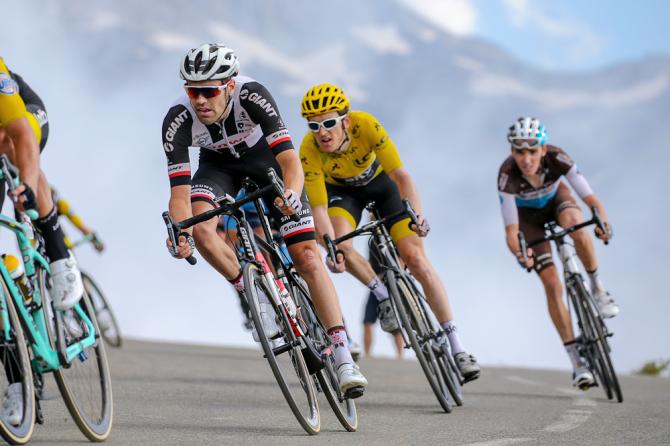
Stage 20: Albertville to Val Thorens, 131km, 131km (July 27)
The Tour de France organisers opted for another short, mountain-packed stage for the grande finale of the 2019 race, and riders will once more fight against the thin air and long ascents of the Alps along the 131km stage from Albertville to the beastly 33km climb up Val Thorens.
Although the final climb is a trifling 5.5 per cent average gradient, the sheer enormity of the elevation gain - over 1800m in one go - and the elevation of the finish line at 2365m - will breathe plenty of life into the general classification battle.
Any rider still looking for time with an early attack on this penultimate stage would be wise to preview the first climb, the Cormet de Roselend: it spelled the end of Stéphane Heulot time in the maillot jaune in 1996. They'd also be wise to become familiar with the descent - in particular the left-hand bend that Johan Bruyneel misjudged and went flying into the ravine the same year.
The Roselend tops out at kilometre 37.5 and, after the long descent to Bourg-St-Maurice, the road tilts back upward to the Côte de Longefoy - the first time the climb will be used in the Tour de France. There's another tricky descent to Moutiers before the grind to Val Lorens.
It's a stage that will test all aspects of a great cyclist: strategy, skill and stamina, and a worthy winner will get to enjoy the next day's parade laps in Paris with a real sense of accomplishment.
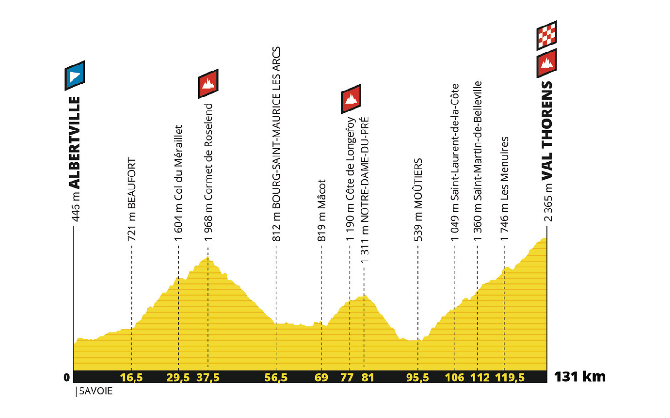

Kirsten Frattini is the Deputy Editor of Cyclingnews, overseeing the global racing content plan.
Kirsten has a background in Kinesiology and Health Science. She has been involved in cycling from the community and grassroots level to professional cycling's biggest races, reporting on the WorldTour, Spring Classics, Tours de France, World Championships and Olympic Games.
She began her sports journalism career with Cyclingnews as a North American Correspondent in 2006. In 2018, Kirsten became Women's Editor – overseeing the content strategy, race coverage and growth of women's professional cycling – before becoming Deputy Editor in 2023.